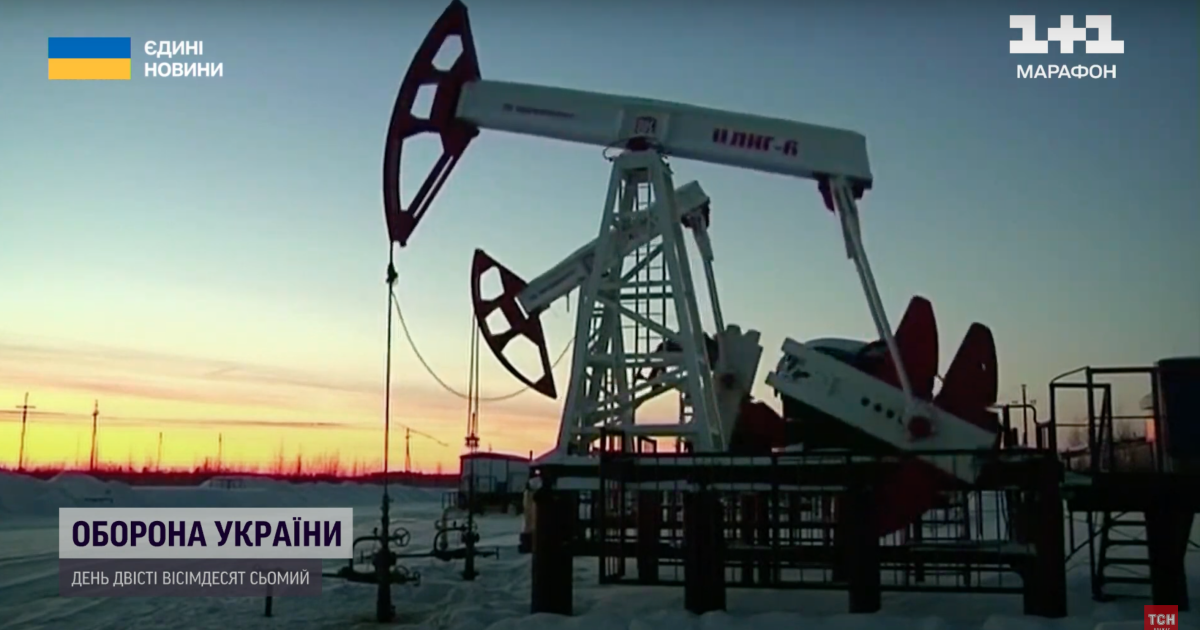The oil sanctions that came into effect on December 5, despite the expectations of skeptics, turned out to be effective.
Russia currently sells oil almost at cost price, and on February 5 the following restrictions will come into force - two price ceilings for Russian oil products will apply.
Diesel fuel and gasoline will not be allowed to buy more than 100 dollars per barrel, for fuel oil the ceiling is 45 dollars.
The US, EU countries, Great Britain, Japan, Australia and Canada are dealing another blow to Russian profits, says TSN.
Russia, they say, produces nothing but disaster and hydrocarbons - that's what they call fossil fuels.
Political scientists noticed one more thing: Russia, which supposedly has never attacked anyone, in recent decades starts its wars with its neighbors only when oil costs at least 100 dollars per barrel, and the "cup" is flaking from stupid money.
This was the case until recently, but it seems that these fat years are behind the Russians.
At the beginning of December, when the USA and the European Union announced that they would give up Russian oil themselves and introduce a price ceiling for others, this decision was widely criticized.
Like, the ceiling of $60 is too high, even if it were half as low.
Moreover, Russia managed to appropriate part of the oil, selling it to China and India.
But in reality, the sanctions forced it to sell oil almost twice as cheaply as the market price, and to run after those willing to buy it, to invent semi-legal supply schemes, and to spend money on creating a fleet of decommissioned tankers.
At the same time, the Russian budget, which is planned for three years, was calculated on the price of 70 dollars per barrel and pre-crisis sales volumes.
"Suddenly it turns out that oil is not sold at 70 dollars per barrel, but only at 48. Not only that, we now see
that individual consignments of oil from the Baltic ports go at a price of 37-38 dollars per barrel.
And so, given such a picture, we can immediately say that the Russian budget ended up in a loss.
That is, there will be less money to wage war," says Russian economic analyst Mykhailo Krutikhin.
They did not live up to the expectations of those who counted on the quick bankruptcy of Russia.
Sanctions work slowly, but the war is costing Russia dearly: the national welfare fund, the government's "cup" that was replenished by oil and gas surplus profits, was reduced by a record 35 billion dollars last year, which is its fifth part.
Although the main oil sanctions came into effect only in December, so Russia will feel their effect this year.
In addition, the price ceiling is soon planned to be revised and lowered further.
Knocking the weapon out of the hands of the aggressor and at the same time not harming itself and the world economy - this is the goal that the club of countries of the democratic world strives for.
"We have worked with a coalition of countries to put a cap on Russian crude oil prices, and we will soon do the same for Russian petroleum products.
The Russians invent schemes to circumvent sanctions, but they are complex, expensive and help sell only a small part of the surplus oil.
At the moment, when restrictions on Russian oil products are already starting to take effect, even more ingenuity will have to be shown.
It is not easy to find alternative buyers for them, instead of Europe.
After all, China and India willingly buy Russian oil at a dumping price, but they themselves are producers of fuel.
Instead, the Europeans, who bought half of Russian oil products, primarily diesel and fuel oil, prepared for this step - stockpiled and found an alternative to Russian fuel.
"It is absolutely possible to find new volumes and replace Russian fuel.
What happened in Europe this year - they solved a much more difficult task - providing themselves with natural gas.
They refused the Russian one and the Russians shot themselves in the foot when they started to limit supplies.
So the price soared to $3,000.
But what did it lead to?
That gas tankers went from all over the world to Europe.
And there was a huge queue that even European ports could not handle such a volume.
And then there was a drop to a thousand dollars, the price dropped three times because the market was saturated.
The same thing will happen with diesel fuel", - assures expert Yuriy Kuyun.
Russian countermeasures, for example, Putin's decree not to sell oil to those countries that have decided to adhere to the price ceiling, according to economists, only exacerbate the problems of the aggressor country's revenue deficit and overproduction of oil, because there is nowhere to store it, and it is practically impossible to preserve the wells.
They are mostly in the north - in the permafrost, and if you stop pumping oil, it breaks up into solid substances - the well is waxed.
It is so expensive to restore production from it later that it makes no sense, you have to drill a new one, or stop production.
This will not have an immediate effect.
However, the revenues of the Russian budget and directly depend very much on oil and gas.
Economists have calculated: Western energy sanctions can reduce the profits of the Russian treasury by 20-30 percent.
Read also:
After arriving in Druzhkivka, an injured woman ran away from the hospital to clear the debris: the whole city joined in
Already 15 hits: in Kharkiv, the Russians destroy the University of Urban Economy and neighboring houses
Where and when the new large-scale offensive of the Russians will begin: forecasts of the authorities, the West and experts
